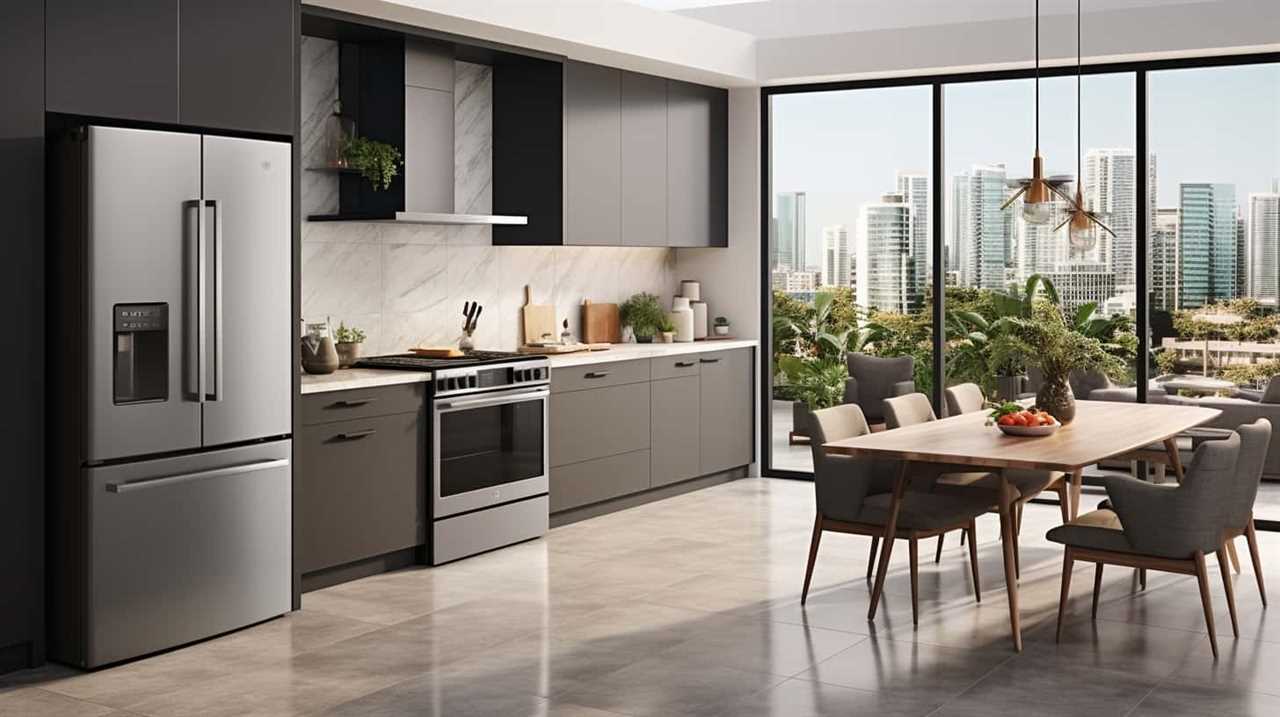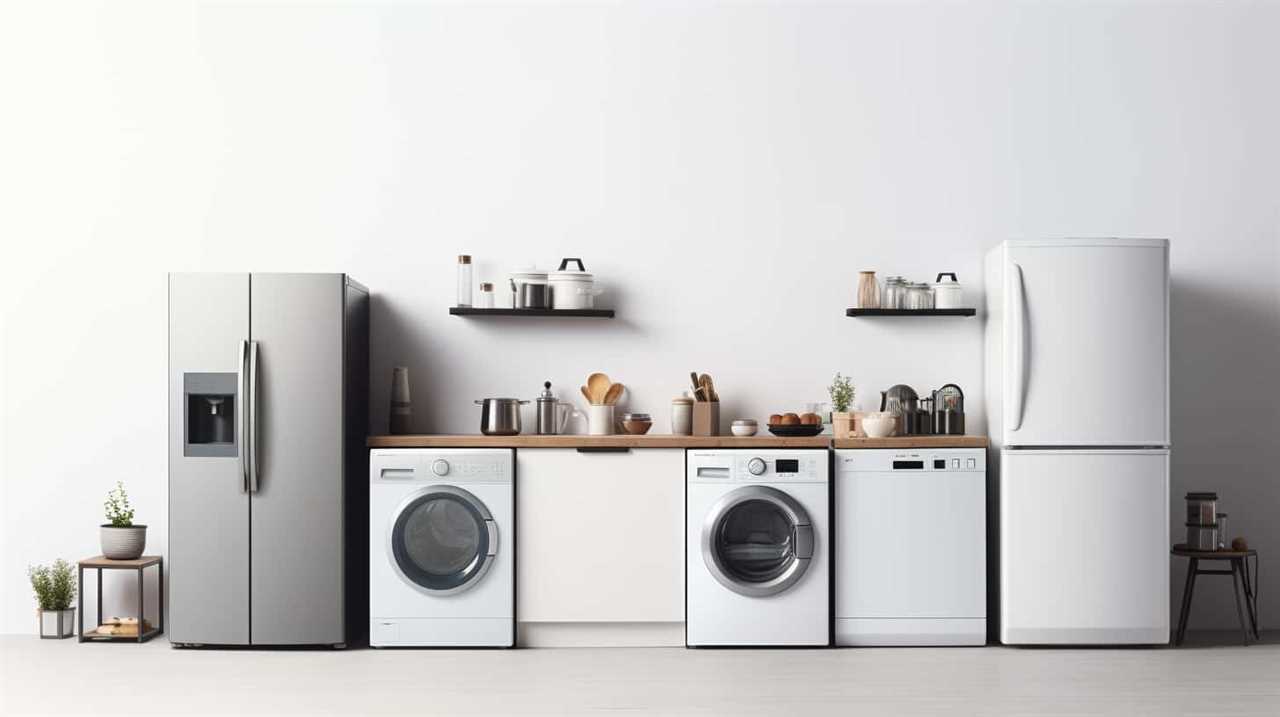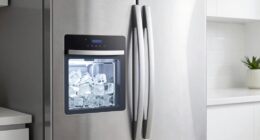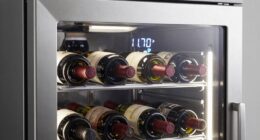DC appliances, also known as direct current appliances, are electrical devices that run on direct current instead of alternating current. Having a good grasp of the characteristics and operation of DC appliances is essential for individuals looking to excel in the field of electrical engineering or for those interested in sustainable energy solutions.
This introduction aims to provide a concise overview of DC appliances, highlighting their advantages, key differences from AC appliances, common applications, and underlying principles of operation.
By delving into the intricacies of DC appliances, readers will gain a comprehensive understanding of their various types and how to choose the most suitable ones for their specific needs.
Through this exploration, the audience can unlock the potential of DC appliances and harness their benefits in both professional and personal settings.
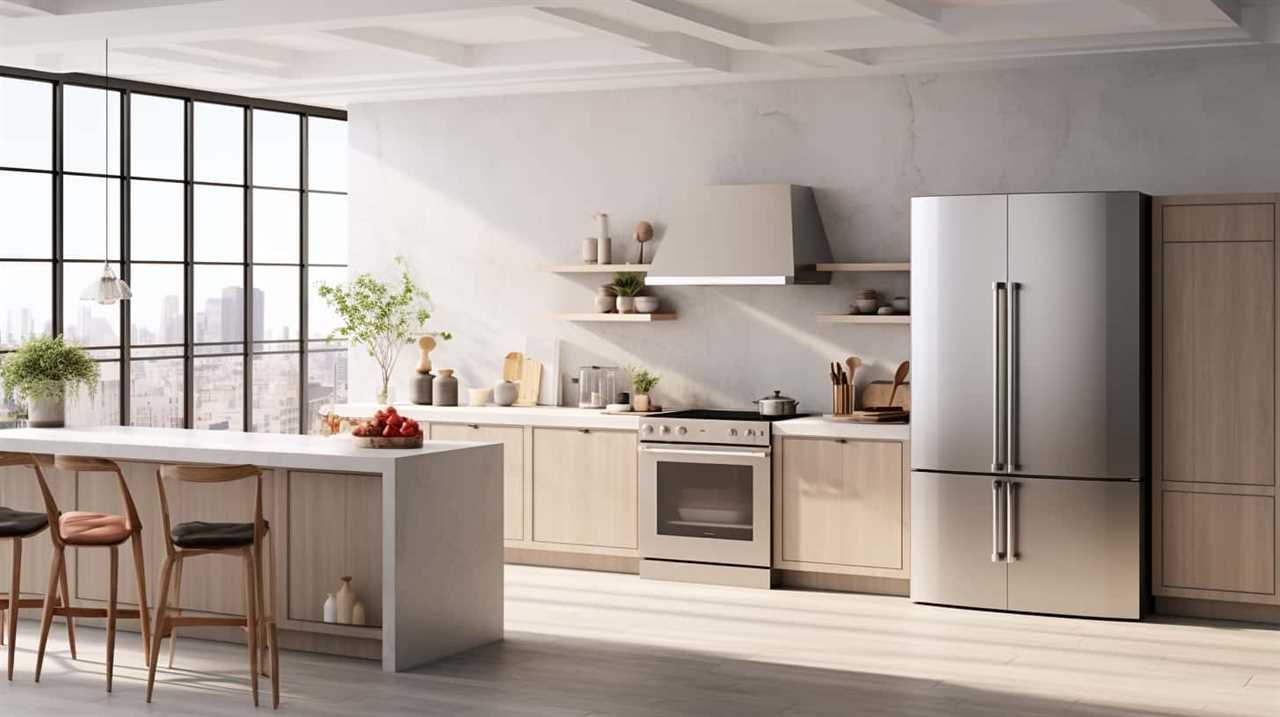
Key Takeaways
- DC appliances are more energy efficient compared to AC appliances.
- DC appliances are lighter and more compact, making them suitable for applications with limited space.
- DC appliances can be powered directly from renewable energy sources, contributing to overall energy savings.
- Common applications of DC appliances include off-grid living, electric vehicles, telecommunications systems, and residential households and commercial settings.
Advantages of DC Appliances
There are several significant advantages of using DC appliances in various industries and applications. One of the key advantages is their energy-saving features. DC appliances are known for their high energy efficiency, as they consume less power compared to AC appliances. This is due to the absence of power loss during the conversion process from AC to DC, which occurs in AC appliances.
Additionally, DC appliances can operate directly from renewable energy sources such as solar panels and wind turbines, without the need for an AC-DC converter. This makes them a sustainable choice, reducing reliance on fossil fuels and minimizing environmental impact.
Moreover, DC appliances are typically smaller and lighter than their AC counterparts, making them more portable and suitable for applications where space is limited. These advantages of DC appliances make them a preferred choice for various industries and contribute to overall energy savings.
Moving forward, it is important to understand the key differences between DC and AC appliances.

Key Differences Between DC and AC Appliances
Frequently overlooked, understanding the key differences between DC and AC appliances is crucial in order to make informed decisions regarding their usage and applications. Here are the three main differences between DC and AC appliances:
- DC vs AC Power:
The most fundamental difference is the type of power they use. DC appliances run on direct current, which flows continuously in one direction. On the other hand, AC appliances operate on alternating current, where the flow of electricity constantly changes direction. - Efficiency:
DC appliances are generally more efficient compared to AC appliances. This is because there are fewer energy losses in converting AC power to DC power. As a result, DC appliances can provide higher levels of energy efficiency, making them suitable for off-grid applications or areas with unreliable power supply. - Benefits of Using DC Appliances:
DC appliances have several advantages over their AC counterparts. They are often more compact, lighter, and easier to install. Additionally, DC appliances are generally safer to use as they operate at lower voltages, reducing the risk of electric shock. Moreover, DC appliances can be powered by renewable energy sources such as solar panels or batteries, offering greater sustainability options.
Understanding these key differences will enable individuals to choose the most suitable appliances for their specific needs and optimize energy usage efficiently.
Common Applications of DC Appliances
DC appliances are commonly used in a variety of applications, ranging from residential households to commercial and industrial settings. One of the main applications of DC appliances is in off-grid living, where they are essential for providing power in remote areas that are not connected to the traditional electrical grid. In these cases, DC appliances are powered by renewable energy sources such as solar panels or wind turbines.
Additionally, DC appliances are also used in vehicles, including electric cars and boats, as well as in telecommunications systems and data centers. Their efficient and reliable operation makes them ideal for these applications.

Understanding the common applications of DC appliances is crucial before delving into how they work.
How DC Appliances Work
One common way that DC appliances function is by converting direct current electricity into the necessary power to operate the device. Unlike AC appliances, which rely on alternating current, DC appliances are designed to work specifically with direct current. Here’s how DC appliances work:
- Power conversion: DC appliances have internal circuitry that converts the direct current electricity into the appropriate voltage and current required by the appliance.
- Energy efficiency: DC appliances are known for their energy efficiency because they eliminate the need for an AC to DC conversion, which can result in energy losses.
- Off-grid systems: DC appliances are commonly used in off-grid systems, such as solar power systems or battery-powered systems, where direct current electricity is readily available.
Types of DC Appliances
Now, let’s delve into the various categories of DC appliances available in the market.
DC appliances are commonly used in off-grid living situations and are particularly beneficial for RV owners.

One category of DC appliances includes lighting fixtures such as LED lights, which are energy-efficient and provide adequate illumination while consuming minimal power.
Another category is refrigeration appliances, including DC refrigerators and freezers, which are designed to operate on low voltage DC power sources, making them ideal for off-grid living.
Additionally, DC fans and ventilation systems are available, providing efficient cooling and air circulation without relying on AC power.
DC appliances for off-grid living offer the advantage of being compatible with solar panels, wind turbines, or other renewable energy sources, allowing for greater self-sufficiency and reduced reliance on traditional power grids.

Incorporating these DC appliances into RVs enables owners to enjoy the benefits of off-grid living while maintaining comfort and convenience.
Choosing the Right DC Appliances for Your Needs
When it comes to choosing the right DC appliances for your needs, there are a few important points to consider.
First, energy efficiency should be a top priority. Look for appliances that have high energy star ratings and consume less power, as this will not only save you money in the long run but also reduce your environmental footprint.
Additionally, it’s crucial to compare the power consumption of different appliances to ensure they align with your energy requirements.
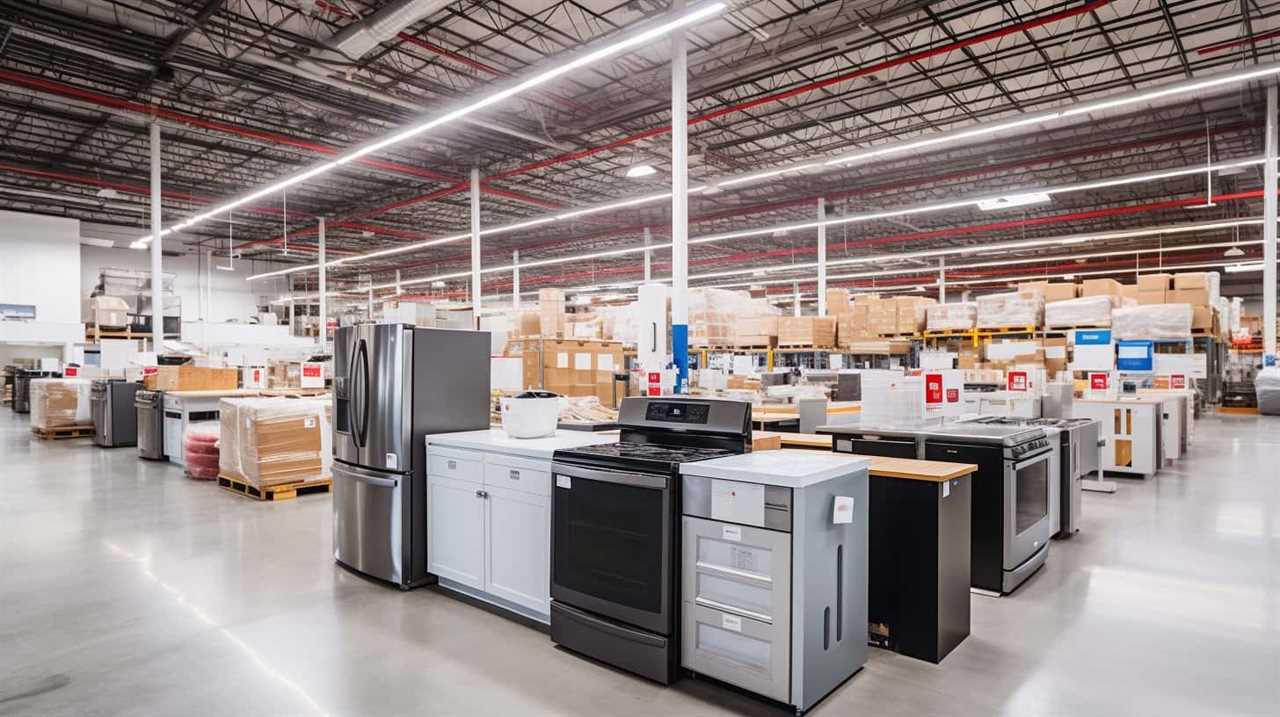
Energy Efficiency Tips
To ensure energy efficiency, it is important to carefully select the appropriate DC appliances for your specific needs.
Here are three energy-saving techniques to reduce electricity usage:
- Choose appliances with high energy efficiency ratings: Look for appliances that are labeled with the Energy Star logo, as these are designed to consume less electricity without compromising performance.
- Opt for appliances with advanced features: Many DC appliances now come with features such as automatic power-off timers or standby modes, which help to reduce energy consumption when the appliance is not in use.
- Consider the size and capacity of the appliance: Selecting an appliance that is appropriately sized for your needs can prevent excessive energy usage. Avoid purchasing appliances that are too large or too small for your requirements.
Power Consumption Comparison
In assessing power consumption, it is crucial to compare the energy usage of different DC appliances to determine the most suitable option for your specific needs.
When it comes to the environmental impact of DC appliances, they are generally considered more eco-friendly compared to their AC counterparts. DC appliances typically consume less power, resulting in reduced greenhouse gas emissions and lower overall energy consumption.
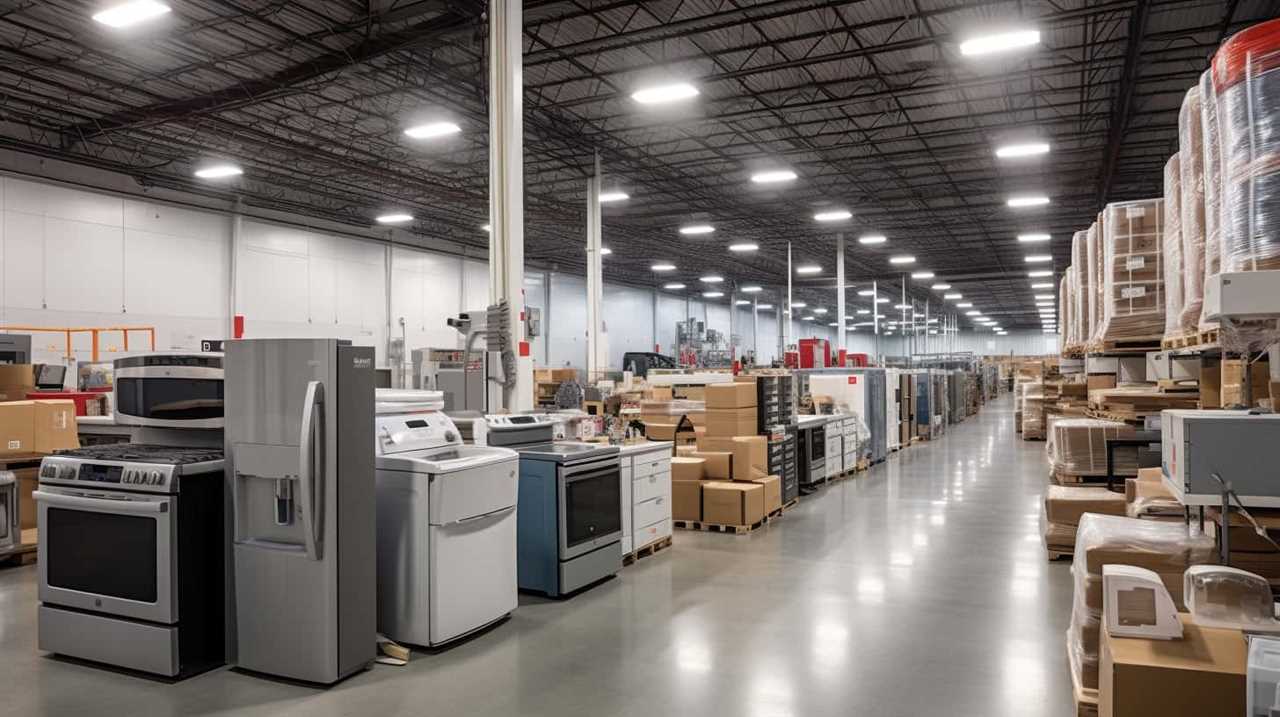
Additionally, using DC appliances can lead to significant cost savings. Due to their higher energy efficiency, DC appliances require less power to operate, resulting in reduced electricity bills. This makes them a more cost-effective choice in the long run.
Frequently Asked Questions
What Are the Main Disadvantages of Using DC Appliances?
The main disadvantages of using DC appliances include higher initial costs due to the need for specialized equipment, limited availability and variety of products, and potential environmental impact from the disposal of batteries.
Are DC Appliances More Energy-Efficient Than AC Appliances?
DC appliances are known for their energy savings and environmental impact. Compared to AC appliances, DC appliances are more energy-efficient, resulting in lower electricity consumption and reduced carbon emissions, making them a greener choice.
Can DC Appliances Be Used With Solar Power Systems?
Using DC appliances with off-grid power systems, such as solar, offers numerous advantages for camping or RVing. These appliances are designed to run on direct current, resulting in increased energy efficiency and compatibility with renewable energy sources.

Are There Any Safety Concerns Associated With Using DC Appliances?
When using DC appliances, there are certain safety measures to consider. Potential hazards include electrical shock, short circuits, and fire risks. Proper installation, grounding, and regular maintenance can help mitigate these concerns and ensure safe operation.
How Do DC Appliances Compare in Terms of Cost to AC Appliances?
In terms of cost comparison, DC appliances generally have a higher upfront cost compared to AC appliances. However, DC appliances are more energy-efficient, leading to potential long-term cost savings. Additionally, DC appliances have a lower environmental impact due to their energy efficiency.
Conclusion
In conclusion, DC appliances offer several advantages such as energy efficiency, portability, and compatibility with renewable power sources. They differ from AC appliances in terms of power supply and electrical components.
Common applications include off-grid living, RVs, boats, and solar power systems. DC appliances operate by converting direct current into mechanical or thermal energy. There are various types available, such as DC motors, LED lights, and solar water pumps.
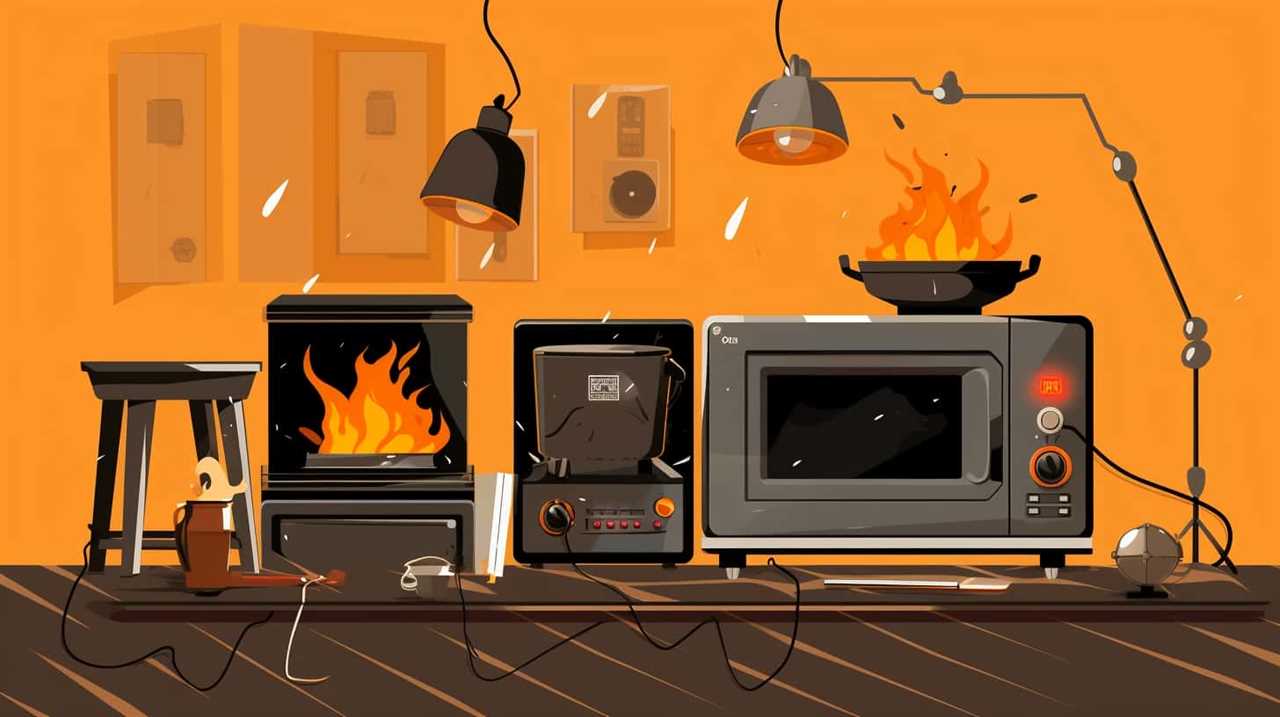
Choosing the right DC appliances depends on individual needs and power requirements.


